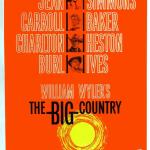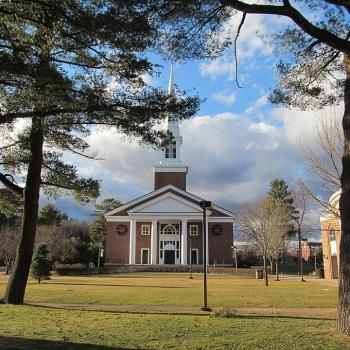Almost anything by Robert Wilken is worth reading. I have benefitted immensely from his The Spirit of Early Christian Thought (Yale University Press, 2003) and The First Thousand Years: A Global History of Christianity (Yale University Press, 2012). Wilken does not disappoint in Liberty in the Things of God: The Christian Origins of Religious Freedom (Yale University Press, 2019), which I have been rereading and pondering as we mark national independence day this July.
Early on in the book Wilken offers the following quote: “It is only right . . . that every person should be able to worship according to his own convictions. For one person’s religion neither harms nor hurts another.”
If you guessed these were the words of Thomas Jefferson or perhaps James Madison, you would be off by about sixteen centuries. They are from Tertullian, a second-century Latin church father, known especially for coining the term “trinity.”
Wilken seeks to reorient our understanding of the history of religious freedom. Today, many educated people believe that once upon a time history teemed with inquisitions, witch trials, and religious wars until, lo, the eighteenth-century Enlightenment arrived, paving the way for the American and French Revolutions and with them the constitutional protection of religious liberty. In this narrative, religious freedom is a relatively recent and secular achievement.
But the actual origins of religious freedom are far more complex and specifically indebted to Christian theology, according to Wilken. His argument proceeds in four stages.
First, the spread of Christianity in the classical world redefined religious belief. In the Roman Empire, religious devotion was tethered to the state and manifested itself in outward acts of piety. It was not an inward matter of conviction and conscience. Christians were thus sometimes charged with “atheism” and persecuted for failing to perform the customary rituals. Roman harassment inspired Tertullian and other early Christians writers, notably Lactantius and Origen of Alexandria, to insist that true religion resided in “conscience” apart from Caesar’s domain. Tertullian in fact first coined the term “religious freedom” (libertas religionis) and saw it as a “human right” (humanum ius). “Religion cannot be imposed by force,” echoed Lactantius against his Roman critics.
Second, despite the Christianization of society in the Middle Ages, the notion of two distinct realms–Caesar’s and the things that are not Caesar’s—endured, generating regular conflicts between popes and emperors, church and state. Examining church canon law and the writings of medieval theologians, Wilken demonstrates the superlative importance attributed to “conscience.” Thomas Aquinas even argued that one must obey an “erroneous conscience,” because doing otherwise would contravene what one held to be right. “One sins more gravely in violating one’s conscience—even if it is in error—than acting in accord with it,” wrote Aquinas. To be sure, Wilken recognizes many shortcomings and abuses of “Christendom,’ but he successfully argues it upheld a high-minded regard for the inviolability of conscience and a sacrosanct realm apart from Caesar’s as a matter of principle if not always in practice.
Third, the fragmentation of Christendom after the sixteenth-century Reformation roused Christians to defend conscience against confessionally-opportunistic “Caesars,” whether Catholic or Protestant. With delicious irony, Wilken quotes Katharina Ebner, a Franciscan nun from Nuremberg, who, appealing to conscience, wrote “here I stand and will not yield” against city magistrates who desired to remake her city into a Lutheran stronghold. Not infrequently at this time, Wilken amply shows, scholars finding themselves in a religious minority quoting Tertullian and Lactantius to bolster their case for freedom.
Finally, thinkers and statesmen in the seventeenth and eighteenth centuries—Jean Bodin, Roger Williams, William Penn, John Locke, as well as revolutionary-era thinkers—inherited from post-Reformation debates a rich discourse on conscience and the limits of Caesar’s reach. Long before Jefferson, the English Baptist Thomas Helwys (d. 1616) even sought equal protection for non-Christians. “Let them be heretics, Turks, Jews, or whatsoever. It appears not to earthly power to punish them in the least,” he wrote.
Yes, the American founders were also “shaped by the Enlightenment,” Wilken acknowledges, but the provenance of their thinking has a longer history. “It was early Christian teachers who first set forth ideas of the freedom of the human person in matters of religion; it was Christian thinkers who contended that conscience must be obedient only to God; and it was the dualism of political authority and spiritual authority in Christian history that led to the idea that civil government and religious beliefs must be kept separate.”
One might quibble with Wilken: Shouldn’t he have said more about the Jews? Could he have connected his story to present-day debates over the scope of religious freedom? What about the transferability of Christian thinking on this topic to other traditions?
That fact that he omits fully addressing these issues should not detract from regarding this book as erudite and well-argued. It poses a fundamental challenge to those inclined to see religious freedom simply as a modern, secular idea.
This review originally appeared in the magazine Touchstone (January/February 2020).













